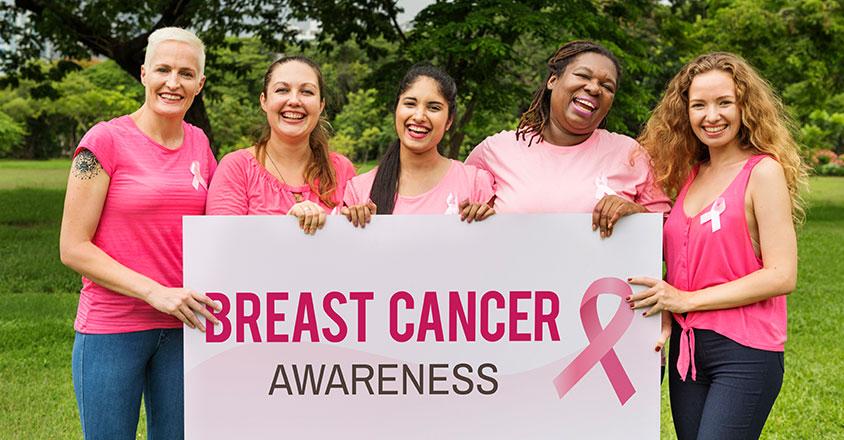

October is Breast Cancer Awareness Month
Aside from skin cancer, breast cancer is the most common cancer in women. There is a 1 in 8 chance a woman will develop breast cancer in her lifetime.
5-year survival rates for breast cancer are:
99% if detected early before it spreads.
86% if it spreads to lymph nodes or nearby structures.
30 % if it spreads to distant parts of the body, like lungs, liver or bones.
You should talk to your doctor about your risk for breast cancer and plan for a screening mammogram with your primary care physician or your OB/GYN. Some factors that could determine your risk for breast cancer, and how you can take extra measures to prevent it.
Is breast cancer genetic?
One of the factors that can determine your risk for breast cancer is family history. According to the National Breast Cancer Foundation, Inc., women who have a family history of breast cancer are at higher risk of getting breast cancer. If you have a first-degree relative with breast cancer (parent, sibling or children), then you should start up to 10 years early with preventative screenings.
The National Breast Cancer Foundation, Inc. states that all women have a breast cancer gene (BRCA) and, despite its name, it helps prevent breast cancer. Sometimes there are mutations found in the BRCA, and this is what causes women to develop breast cancer. Please note that less than 10% of women diagnosed with breast cancer have a BRCA mutation. With early detection, treatment is available for most breast cancer cases, and it is true even for people who have a BRCA mutation.
Think pink and get ahead of breast cancer
As stated above, early detection is the best way to treat the most breast cancer cases. The National Comprehensive Cancer Network (NCCN) recommends that all women who are 40 or older with an average risk of breast cancer should have an annual screening mammogram. For higher-risk patients, they should have a clinical breast examination by a physician every 6-12 months and should consider a high-risk screening of an annual breast MRI along with a yearly mammogram.
For more information about breast cancer awareness, you can read:
-
 Breast cancer screening can save your life
Breast cancer screening can save your lifeAll women age 40 and older at average risk of breast cancer should have an annual screening mammogram.
Learn more -
 Mammograms
MammogramsA mammogram is an X-ray of the breast. Its primary function is to detect breast cancer or other abnormalities in the breast tissue.
Learn more -
 Preventing breast cancer Q&A
Preventing breast cancer Q&AHere are some common questions and answers about breast health and preventing breast cancer you may find helpful.
Learn more
Ready to get healthy?
Sign up for our digital newsletters to receive health tips, recipes, success stories for inspiration and information about new doctors to help you on your journey to better health.
Genesis HealthCare System’s Health and Wellness content conveniently provides accurate and helpful information. Your health history and current health may impact suggestions provided through our Health and Wellness content. Although we hope this information is helpful, it is not a substitute for your doctor's medical advice. Before making any significant changes, please consult your doctor.



